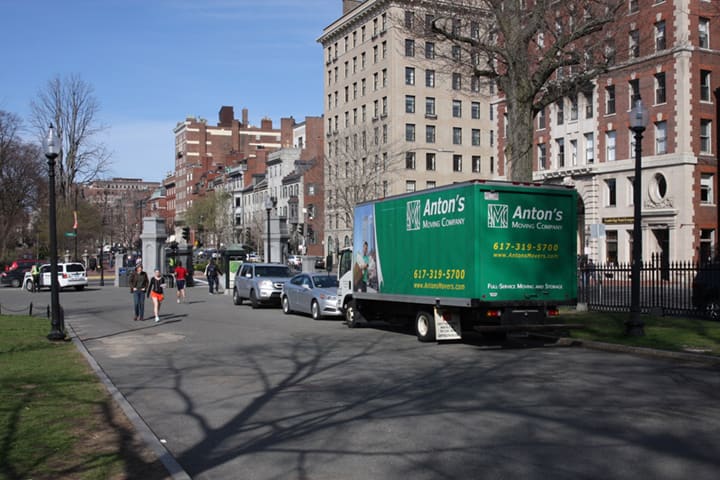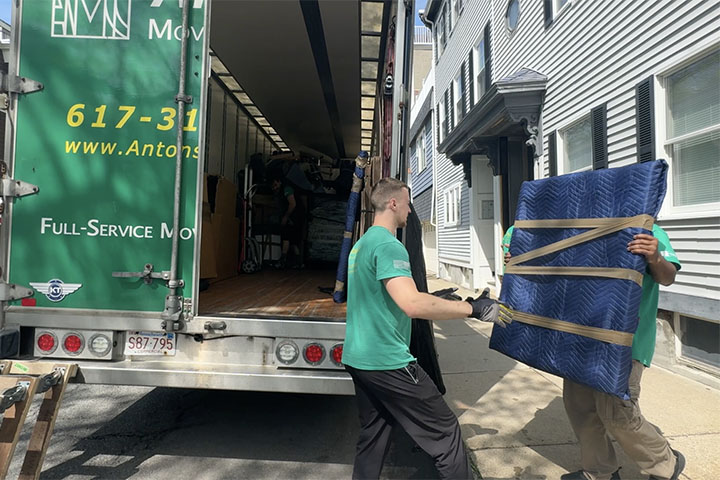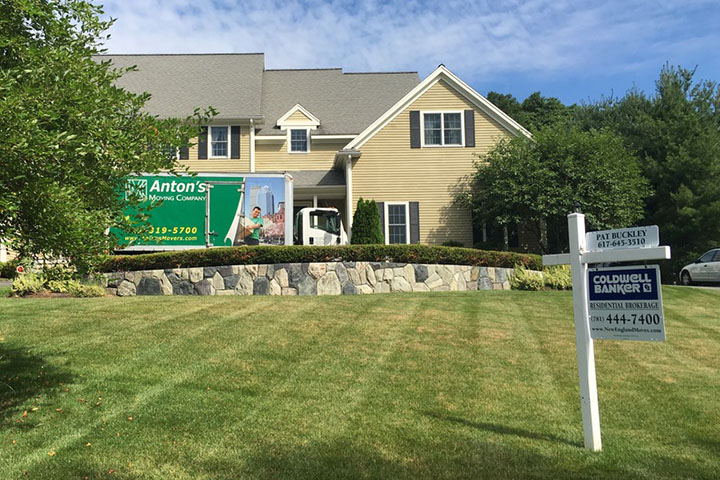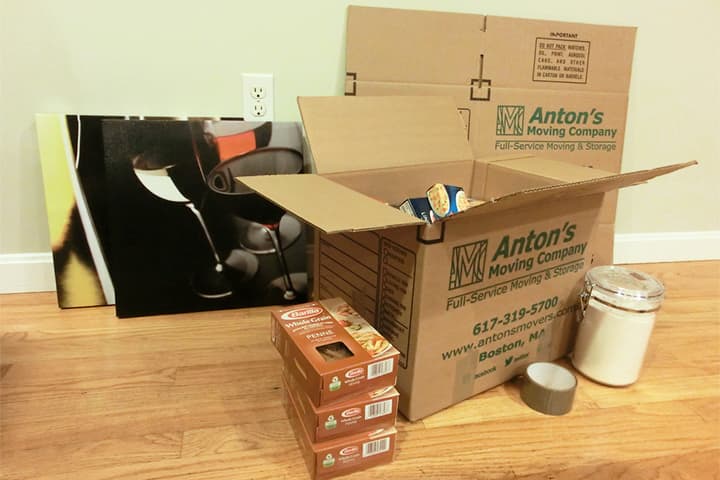Avoid Fines and Delays: How to Get a Boston Parking Permit Before Your Move
August, 2025 Time: - 10 minute read

Here’s something you probably won’t see on the packing checklist for your Boston move. Unless you want to deal with a citation taped to the windshield (or worse, a truck with no place to park), this is definitely something you should on top of your priority list.
In Boston, reserving space for your move is how you can be sure you’re not parked in a tow-away zone or you’re not blocking someone else’s driveway. Not to mention it’s your only guarantee to not be stuck circling the block while your valuables wait on the curb. You have to plan ahead for this: there are forms and fees that need to be taken care of well before the truck shows up.
Once you get these details in order, you can count on Anton’s Movers to handle the heavy lifting. We know how to manage local Boston moves so you don’t have to stress.
Why You Need a Parking Permit for Your Boston Move
Boston’s parking is already competitive, but a moving truck requires even more strategy. You can’t just pull up to the curb and start unloading, otherwise you’ll have to deal with:
- Fines: they start around $90, even if you’re only parked for a short time.
- Tow fees and retrieval: these can eat up hours and cost hundreds.
- No guaranteed space: your movers might end up circling the block instead of unloading.
- Delays at the curb: you’ll be thrown off your schedule.
Types of Boston Moving Permits
Not all permits are the same, and what you need depends on the kind of vehicle you’re using and where you’re parking. Here’s a quick overview of what city offers for Boston residential movers.
Temporary Moving Truck Permit
This is the most common type. It lets you legally park a commercial moving truck on a residential street for a limited window. It’s meant for box trucks, U-Hauls, and similar vehicles. Without this, your truck may be cited even if it’s there for just an hour.
Street Occupancy Permit
Sometimes you simply need a bit more breathing room. Say, you’re using a storage container that might block a section of a street. In cases like this, you need to get a street occupancy permit. It gives you more flexibility but usually comes with potentially higher fees.
No Parking Signs (City-Issued)
Even with a permit, you’re not guaranteed a clear space unless you’ve posted official “No Parking” signs. Boston provides these at City Hall for a few bucks each. You’ll need at least two, and they must be displayed at least 48 hours in advance of your move. This gives neighbors notice and allows enforcement officers to ticket cars that ignore the signs.
How to Get a Boston Moving Permit Step by Step
You can do this on your own or let your moving company handle it. Either way, here’s what the process looks like if you're applying yourself.
Step 1: Know Your Move Date and Address
The city of Boston will ask for certain information to determine where the city will place your “No Parking” signs. You need to give very precise information because having the wrong time or side of the street will make the permit unenforceable. You’ll need:
- The specific street address where the truck will park
- The side of the street (even or odd side, left or right)
- The start and end times you’ll need the space
- The type of vehicle (moving truck, container, etc.)
Step 2: Check the Rules for Your Street
Not every street follows the same rules. The city’s online permit tool (available through Boston.gov) allows you to look up restrictions by address. If you’re unsure about anything, call 311 and ask for help. You don’t want to apply for a space you legally can’t use. Check for:
- Street cleaning schedules
- Existing construction or utility work
- One-way streets with limited truck access
- Resident-only permit parking zones
- Bus stops, fire hydrants, and loading zones
Step 3: Apply Online or Go In Person
You can apply for your permit in two ways:
- Online via Boston’s Permit Portal: Visit https://boston.gov/moving and follow the prompts under "Moving Truck Permit" or "Street Occupancy Permit."
- In Person at City Hall: Go to the Boston Transportation Department, Room 721, located at 1 City Hall Square. Business hours are typically 9:00 a.m. to 5:00 p.m., Monday through Friday.
Important:
Apply at least three business days in advance of your move. This is a strict rule. If you apply later than that, you’ll need to pay a $20 late fee and you risk not getting your signage in time to post it properly.
Step 4: Pay the Fees
Fees are consistent across most neighborhoods, but always check for updates before you pay. Here’s what you can expect:
- $69 for the temporary occupancy/moving truck permit
- $4 per official No Parking sign (minimum of 2 signs per permit)
- $20 late fee if your application is submitted fewer than 3 business days before your move
Step 5: Post the Signs Properly and On Time
This often overlooked part is absolutely required. Boston won’t enforce your reserved space unless you’ve posted the city-issued signs at least 48 hours in advance of your move.
- Tape or zip-tie the No Parking signs to a utility pole, fence, or another visible fixed object
- Place them exactly where the truck will park.
- Post the signs by 12:00 p.m., two full days before your move
- Make sure the signs are dated correctly and haven’t been removed or vandalized
- Take photos of the signs once they’re posted. This gives you proof in case someone parks in your spot or disputes the enforcement.
When to Apply for a Boston Parking Permit
Apply as early as you can. A full week in advance is a safe bet. That gives you time to gather the materials, print the permit confirmation if needed, and get your signs posted with enough notice.
Once you pick up your signs, you’ll want to get them up two full days before the move. For a Saturday move, that means posting by Thursday at noon. The city sticks to this rule and doesn’t grant exceptions.
Last-minute applications usually cost more and may not be processed in time for your signs to be posted properly. If someone’s already parked in the space on move day and your signs went up late, you may not have the legal grounds to request enforcement.
Wrapping It Up
The city of Boston requires permits for moving trucks on most residential streets, so leaving parking to chance is one of the biggest mistakes you can make. Start with locking in your move date and checking the permit requirements for your location. And don’t forget to apply at least three business days early! Plus, you’ll have to post the official signs 48 hours ahead of your move.
If you’d rather focus on settling in instead of all the stress that comes with moving, Anton’s Movers can handle all your valuables for you. We’ve got Boston’s rules down to a science, so we can take care of the logistics. One less hassle on moving day can be the difference between chaos and order.


